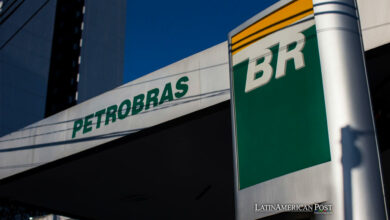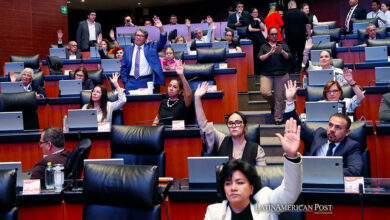These are the challenges that Diego Molano would face in Bogotá’s city hall
Listen this article
Molano is in a struggle to represent the Democratic Center party for the mayoralty of the Colombian capital

He defines himself as the candidate of the experience and assures that this is what differentiates him from the candidates for mayor of Bogotá in the party of President Iván Duque. Diego Molano is already advancing his agenda to stand out and win this candidacy, which will be defined using a widespread consultation and another within the party. The Latin American Post spoke with Molano about the economic challenges facing Bogota, and about the solutions, it would implement if it manages to hold the position.
Leer en español: Así enfrentaría los retos económicos de Bogotá el candidato Diego Molano
The party Democratic Center continues to escape the mayor's office in the capital, in fact, in the most recent ballots, Bogota has consistently voted against him, as evidenced in the presidential elections of 2018, where the majority in Bogota got the ex-mayor of the city, Gustavo Petro.
Molano, with a long career in the public and private sector, holding essential positions in entities such as the Colombian Family Welfare Institute and the Presidential Agency for Social Action, would face the enormous challenge of labor formalization in his mayor's office, in addition to what it implies materialize the presidential agenda of the development of the creative industries, the so-called 'orange economy'.
Read also: This is Diego Molano, precandidate to be Bogotá's mayor
The vision of the Democratic Center, the strengthening of the 'orange economy.'
Since his campaign, President Ivan Duque has placed a strong emphasis on strengthening cultural and creative industries as a force for economic development. Molano adheres.
"We are already committed to the orange economy, it is a vision that the Democratic Center has, and in fact it is already public policy" said Molano, who in his time as councilor was a speaker of the creation of the Fund for Innovation, Technology and Creative Industries of the city of Bogotá, which is born with $ 10 billion pesos to support entrepreneurship projects in this area of the economy.
"Bogotá has the opportunity and the capacity to become the capital of the orange economy," declared Molano. But he sees an obstacle, the perception that the cultural is not sustainable in the long term as a business.
His proposal would solve this by means of the promotion of the orange economy, which he interprets as the union of the business world with the cultural one, allowing, with public and private aids, that the creatives also develop business skills that allow them to convert their talents into sources of reliable income.
Informality, the eternal challenge of Bogotá
In the current mayoralty, that of Enrique Peñalosa, one of the most challenging dichotomies to resolve has had to do with street vendors, informal workers who operate from the public space of the city. Formalize them or relocate them to recover public space? What takes precedence?
For Molano, this has also been a problem during his campaign, because on the one hand the services provided by street vendors are recognized and used by the population, which does not make its prohibition preferable, but on the other, its indiscriminate use of public space brings I get problems.
"The main problem is now in the relocation programs," says Molano.
"They take the peddler, who has acquired rights, as the right to work granted by the constitutional court, which can not be removed from his post, and when they convince him of the relocation they put him in a three-story building where he does not people go by After three days he is back on the street. "
From his conversations with street vendors , Molano claims to have learned three conditions for them to accept their transfer to spaces regulated by the mayor's office, where they do not invade the public space: that the transfer is to a crowded place where it can be sold, that the mayor will support them while they consolidate their sales and that they are given decent working conditions.
Molano thinks that what is needed is creativity in the solutions to this problem, and proposes to take advantage of the situation offered by the construction of the Bogota metro to correct the situation.
"Start making relocations near stations, in squares. This worked very well on San Victorino Avenue. There are all the sellers located, they sell, and they have not moved from there. There is an important stake in the recovery of public space."
Between those two problems, Molano would have his hands full for the four years contemplated by a mayor. However, it faces others in terms of security, mobility, infrastructure and the environment, but for those who will have to present proposals if it wants to occupy the Palace of Liévano and give its party the support of the capital.
LatinAmerican Post | Pedro Bernal
Transalated from "Así enfrentaría los retos económicos de Bogotá el candidato Diego Molano"





